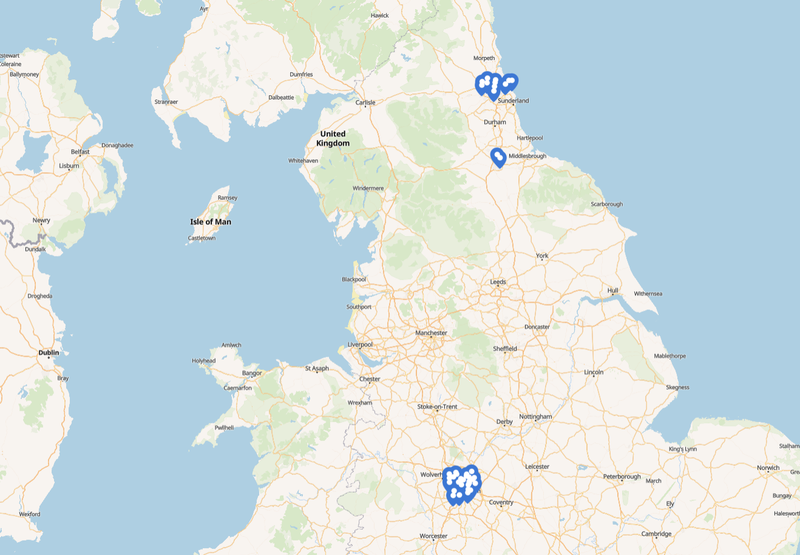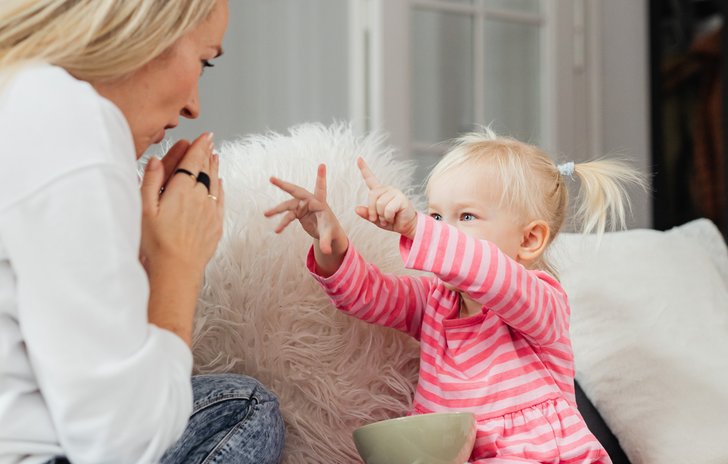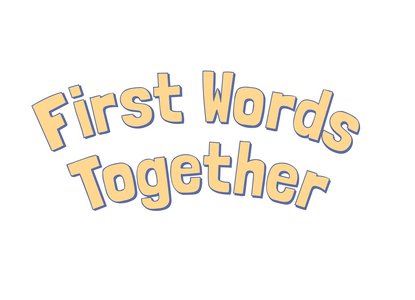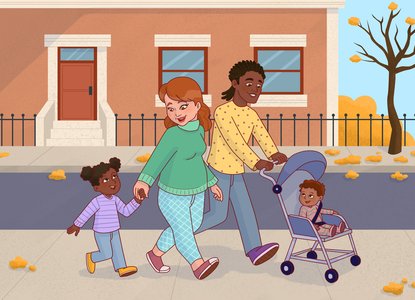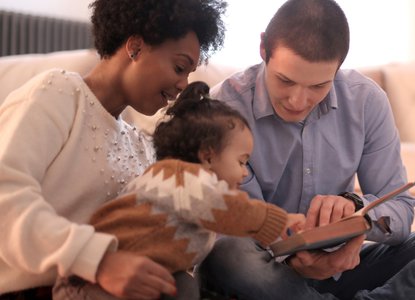Babies and toddlers are all wonderfully unique and develop at their own pace, however, it is completely natural to have concerns about your little one as they learn to talk.
That’s why we’ve teamed up with NHS Speech and Language Therapist, Roxy Bright-Thomas, to answer your frequently asked questions and help you support your child’s communication skills.
My daughter is nearly three and still not talking much, should I be worried? She says sentences with no clear words, but can say single words well on their own.
Roxy says:
It is great that she is using single words and sometimes tries to extend to longer utterances (‘says sentences’).
If the single words are produced clearly, then keep going and build on them. Here are some simple things that can help:
- Continue to get down to her level physically and comment on what she is doing by matching what she says and adding one word in – this way she will hear a longer sentence and new words are modelled back to her.
- If the single words you hear are NOT clear, simply model back the word she is trying to say correctly, so she hears it said in the right way. If you are not sure what word she is saying, say: 'Oh no, my ears are not working today - what was that word?'
- Or you can ask her to show you - ‘Show me?' - to help you can figure out what she means without her having to repeat the word. You can then repeat the correct version of the word to her.
If you are concerned about how clear her words are, it might be good to pop to the GP or ask your Health Visitor whether a referral to Speech and Language Therapy might be needed.
My daughter is four and still babbles a lot – her sentence structure is no more than two or three words. What should I do?
Roxy says:
By the age of four, typically we expect up to 1,500 single words and sentences that combine three or four words when talking. However, there is a BIG range of what is typical. All children are different and develop at different rates.
Babbling amongst the words should start to reduce dramatically and ideally be gone by this age with the babbles being fully replaced by words.
Some simple things that might help:
- Try to respond to any babbles by saying the word back correctly. Don't draw attention to 'baby talk' simply model back the correct word. Repeating back the word in a positive way, without correcting OR asking her to repeat back is a good way to model what she thinks she has said.
- Keep commenting on what she is doing during play, talk about what she is interested in, and add words (match the single words she says and add in another word) to help her hear longer sentences.
- Being at her eye level when you say words means that she can see your mouth and lips moving. If she is struggling with sounds in words and producing some words incorrectly, you could try word play games such as tapping or clapping out words. These help to draw attention to the sounds in words, making her more familiar with how different words sound.
- Reading stories is also a great way to model words! Stories use a similar tuneful rise-and-fall pattern of talking that resembles 'babble' so this will interest your child and help her to hear a variety of words modelled.
If you are concerned about how many words she has OR that the words she uses are not clear due to babbling, it might be good to pop to the GP to get advice about whether a referral to Speech and Language Therapy might be needed.
My son is 15 months and just babbles and says ‘baba’. He does not say much else. Is this okay?
Roxy says:
It is important to remember that every child is different and develops in different ways. Just because a child is not talking it does not mean that he is not communicating. Your child will be telling you lots of things without words. For example, he will be showing you how he feels and what he needs through movements, facial expressions, and gestures.
A helpful thing to try might be responding verbally to any non-verbal communication. For example, if he reaches for something, label it out loud. If he points, reinforce this way of communicating by naming what he is pointing at. Talk about what you are doing throughout the day so he hears lots of words that relate to his everyday experiences.
There are also simple things you can incorporate into your play time together:
- Remember the importance of being ‘face to face’ - and making sure he can see your face when you play together.
- Follow his interests and comment on what he is doing. By letting your child lead, he is more likely to be interested in what you say and will therefore listen carefully to the words you use.
First words come from hearing words in context repeated and modelled by the adults in the child's environment. Keep persevering using these tips and the 'babble' should gradually turn into words.
My granddaughter is four and awaiting assessment as she does not yet speak in sentences – she just says a few words. How can we help encourage her?
Roxy says:
- Keep responding to the few words she is saying by repeating them back and adding in a word. For example, if she says 'car', repeat back 'red car' so that you’re matching what she says and adding one word.
- Is she communicating in other ways, such as showing you things or taking you to something she likes? If so, reinforce those behaviours by labelling the words she is not saying.
- In play, always try to follow her lead so you are talking about and modelling language that interests her. Watch what she does and talk about the things she is playing with. If she is interested, she will listen and the words she hears a lot will start to be used in her talking.
- Reading stories introduces lots of new words and encourages the repetition of words. Children need to hear words repeated lots of times to understand them and then use them in their talking.
- Singing songs and nursery rhymes are also great ways to develop language skills in a fun, motivating way.
Explore our collection of songs and nursery rhymes.
My one-year-old doesn’t always repeat the words I model to them. How long do I wait for an answer before moving on?
Roxy says:
Typically, a child needs to hear words lots of times to understand them. There is a gap of a few months between understanding words and a child starting to use words in their talking.
Modelling and repeating words that are important to the child, words used in context and in their everyday environment, will help them to understand and attach meaning to words. Once they make that connection, they will then start to use those words in speech.
Some top tips:
- Comment on what your child is doing throughout the day, so they hear words for everyday objects and everyday activities repeated lots of times.
- Watch what your child does and allow time for the child to respond with a word, action or gesture. The amount of time you need to wait for a response varies for each child. Some children might not respond but will be processing and listening to what you have said.
- Giving a choice during play or every day routines is a great way to encourage and develop language skills, for example, 'teddy or dinosaur?'. If the child chooses 'teddy' (with a word, gesture, or by taking it) you then say 'teddy' again as the child takes the toy.
My child is two and a half and can say words but there is no conversation. When they want or need something they get my attention by grabbing me and making me get up. Also, if they learn a new word, often they don’t say the beginning or the end sound. What can I do?
Roxy says:
It is great that your two-and-a-half-year-old knows lots of words. Typically, between the ages of two and three, children are using at least 200 words, and some children as many as 1,000 words. Children of this age generally start to combine words and talk using two or three-word combinations. Some children might be combining three or four words by the age of three.
For example, if a child is asking questions at this age, they will be very early forms of questions that start with ‘who’ or ‘where’ - for example, 'Where’s Mummy?'. Playing games like I Spy or Hide and Seek will help model this language, using 'where' 'who' and 'what' in play.
Its also worth saying that words produced by a child aged between two and three might not sound like the adult form of the word. Children this age typically drop off the end sounds. These speech patterns should reduce and start to disappear by the age of roughly three and a half.
Children are all different and there is a large range of what is typical at this young age. However, if speech difficulties persist and you are concerned, ask your GP or Health Visitor for advice on whether a Speech and Language referral is needed.
How can sharing books help my little one to learn their first words?
Roxy says:
Babies are born ready to communicate with us! They turn their heads to hear our voices and respond happily to hearing us talk to them. They love the rise-and-fall of our voices. The way a parent talks to a baby using sounds that go up and down is called ‘baby talk’, and babies love to hear this.
Reading stories (and singing songs) mimics this rise-and-fall sound and holds a child's attention. Children of all ages, not just babies, tune into this and are interested in listening.
This shared attention that we see when reading stories and singing songs is essential to developing language. Also, words are repeated a lot during story or song sessions. This combination of listening carefully and repetition means that words are learned in a fun and motivating way.
Read more about reading stories with noises.
Are there any extra activities I can do to support my child’s speech development?
We have outlined all the key information to help you understand your child’s language development and created a series of tips to support your baby to communicate. These tips are fun activities that you can fit into your day-to-day life and will help your toddler learn their first words. View demonstrations of each of the tips on this webpage.
You can also find out where First Words Together sessions are happening in your area, so you can meet local parents with children of the same age, and practice the activities in person.
